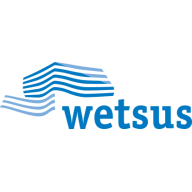General information
Field: Environmental biotechnology, biotechnology and enviromental sciences
Location: Wetsus, European Centre of Excellence for Sustainable Water Technology, Leeuwarden (The Netherlands)
Type of project: Master Thesis
Duration: 6-9 months (preferably 9) starting in September/October 2020
Allowance: 175 €/month if no grant is obtained e.g. Erasmus/regional scholarships.
1. Project description
Activated sludge (AS) is normally produced as a waste by-product in biological wastewater treatment plants. Within the circular economy concept, AS can be directly used for the production of renewable products, e.g. polyhydroxyalkanoates (PHAs), when volatile fatty acids (VFAs) are used as substrate. Previous research has showed that a biomass short-term acclimation approach of two to four feast famine cycles before the accumulation process will lead to an increase in the kinetics and extent of PHA accumulation with municipal activated sludge. Despite the fact that this method was reproducible, it was quantitatively not consistent. This project aims to understand the fundamentals and mechanisms behind the observed increase in PHA production performance. This project is part of the theme ‘Biopolymers from water’ (https://www.wetsus.nl/biopolymers-from-water) and in collaboration with Delft University and industrial partners.
2. Your tasks
- Collaboration in development of ideas and insights on PHA production.Operation of a fed-batch reactors for PHA production
- Operation of a fed-batch reactors for PHA production
- Monitoring and evaluation of process performance
- Quality characterization of the produced PHAs
3. Your profile
- MSc student in biotechnology, environmental engineering or related fields.
- Preferably, EU citizen or international student registered at a Dutch university or technical high school.
- An aptitude and interest for practical laboratory experience and analytical work.
- Fluent in English language (speaking, writing and communication skills).
4. How to apply
Interested students are invited to send a motivation letter (max. 1 page) and a CV (max. 2 pages) to Angel Estevez Alonso ([email protected]).


